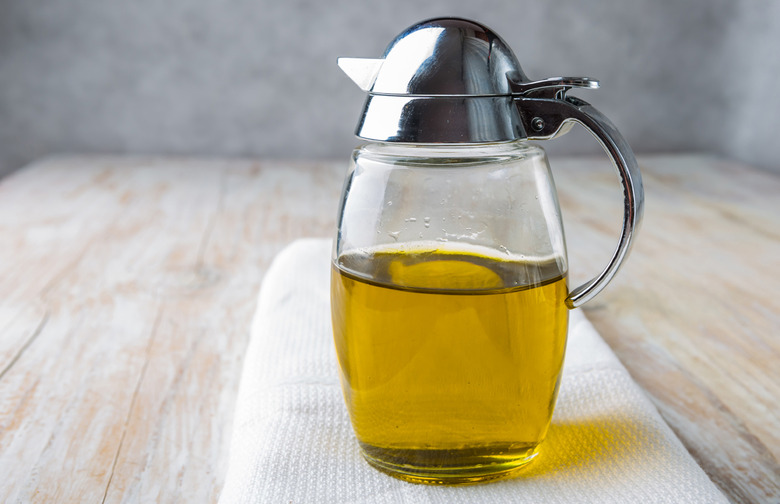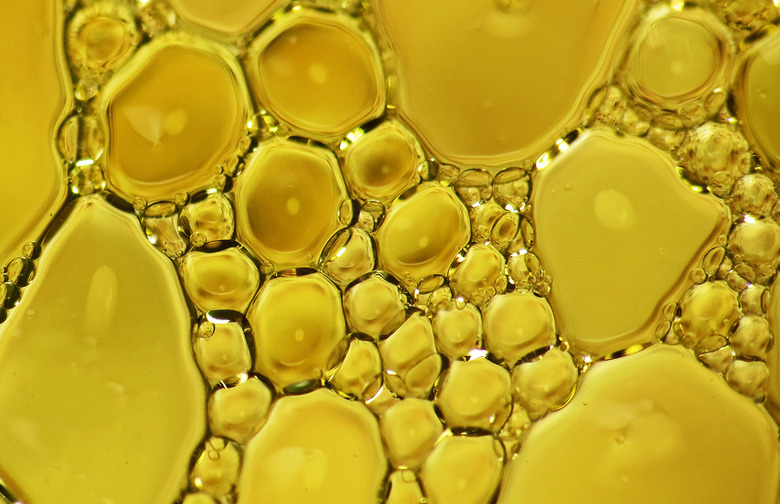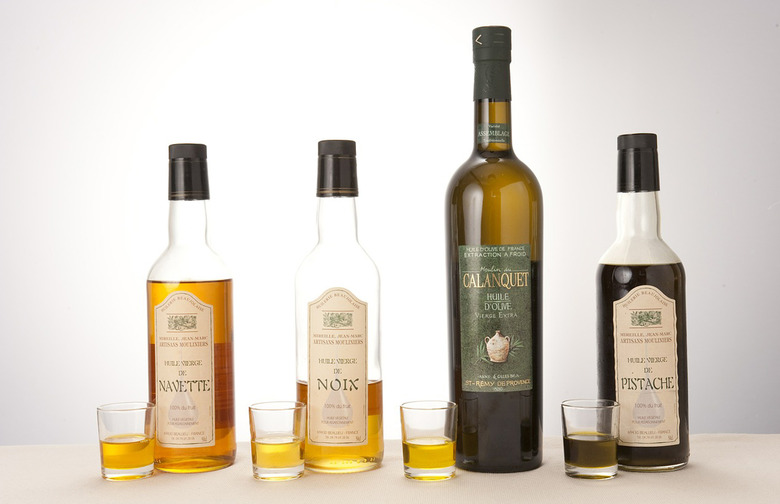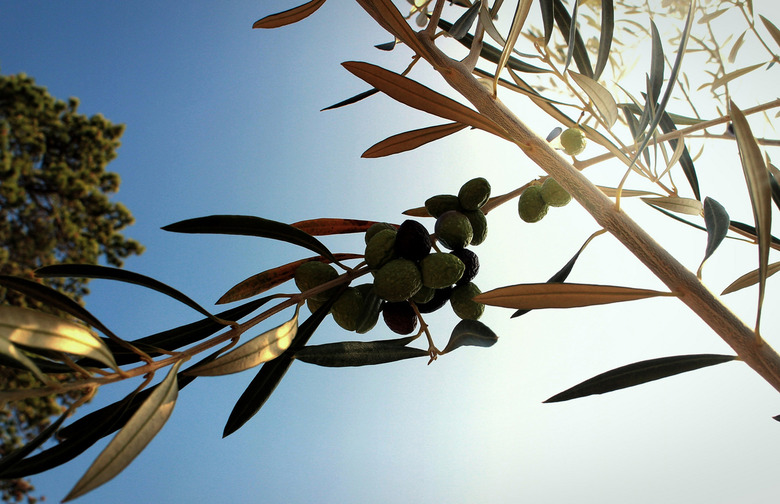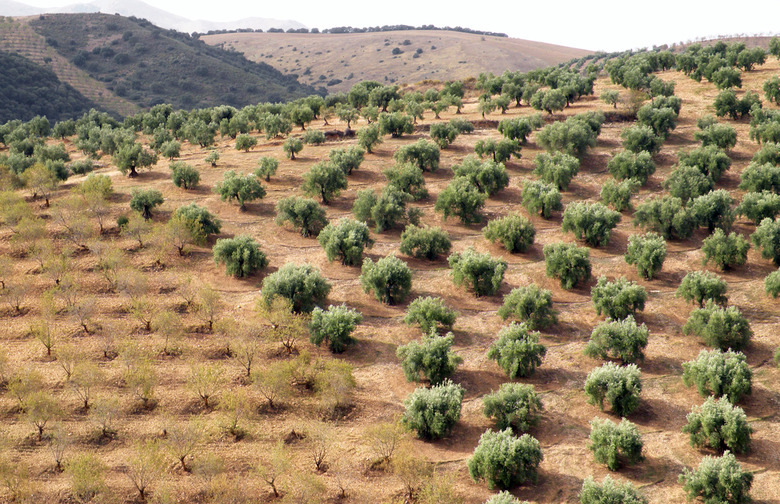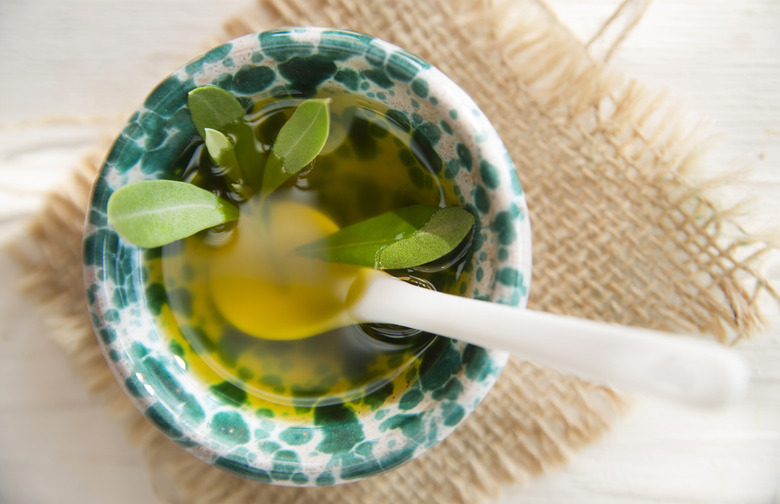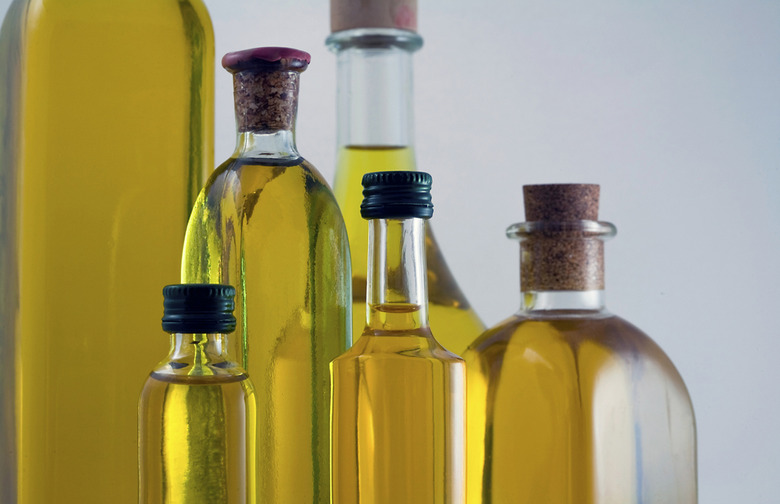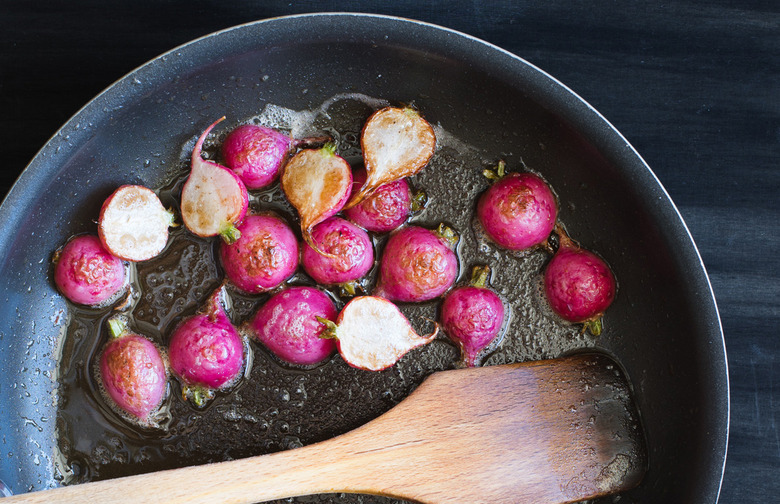10 Things You Didn't Know About Olive Oil
Think you know everything about your favorite cooking oil? As it turns out, your olive oil is hiding a few secrets in the bottle. From a sordid relationship with the Italian mafia to properties that actually debunk the myth that oil is bad for your skin, these 10 facts about olive oil prove that it is more than a tasty addition to salad dressings.
Extra-virgin olive oil is considered unrefined and of the highest quality of all the grades of olive oil. To meet the extra-virgin standards, the olive oil must be left untreated by chemicals or heat, which helps it retain its olive flavor. Also, extra-virgin olive oils must contain no more than one percent of oleic acid, which contributes to the stronger taste and richer color of the oil.
But what else do you need to know about one of our favorite pantry staples? We've rounded up 10 facts about olive oil to help you feel just a little more informed about the dynamic ingredient next time you find yourself stumped in the oil aisle at the grocery store.
Extra-Virgin Olive Oil Will Freeze Solid
While freezing olive oil to test if it is real is a myth (many other oils can mimic the freezing temperature of olive oil), in general, olive oil will freeze, but the exact temperature is dependent upon oleic acid levels present.
Greeks Consume the Most Olive Oil
Greeks consume more than 5 gallons of olive oil a year per person on average. That is a lot of olive oil and dwarfs the U.S. per capita consumption of a little more than one liter.
Light Olive Oil Is Not Lower in Calories
Light oil does not refer to the calorie count, but rather the ratio of extra-virgin olive oil to refined olive oil. The extra-virgin oil is what gives the oil its distinctive taste.
Olive Oil Comes in Different Colors
The color of olive oil might change slightly overtime as it oxidizes, but olive oil naturally comes in a range of colors from pale yellow to deep golden to green. The more chlorophyll present in the oil, the greener the product will be. Green oils tend to be higher in antioxidants and have a more intense peppery flavor with just a hint of bitterness.
Olive Oil Is Made From the Fruit Not the Seed
Olive oil is produced through the mechanical pressing of the ripened olive fruit, and unlike most oil is made from the fruit, rather than the seed.
Oxygen, Light, and Heat Are the Enemy
It is best to store olive oil in a cool, dark place away from light and heat, which will speed up oxidation, causing the oil to become rancid faster.
Spain Produces the Most Olive Oil
95 percent of the world's olive oil supply comes from the Mediterranean, with Spain producing 50 percent of the total world supply. Italy is the second-largest olive oil producer, processing about 15 percent.
Cloudy Olive Oils Are Safe to Use
Olive oil can appear cloudy for many reasons, including it is an unfiltered olive oil (which just means the sediment and pulp was not removed) to chilling (cold olive oil can take on a cloudy appearance). The sediment in unfiltered olive oils is nothing more than pieces of olive that actually add flavor to the oil. To clear olive oil that has become cloudy because of temperature, just leave out at room temperature. The saturated fat that congealed in the cold will settle naturally.
The Sicilian Mafia Is Tied to Olive Oil Fraud
According to a recent 60 Minutes special, as much as 70 percent of olive oil produced in Italy is mislabeled, and the Sicilian mafia is largely to blame. There has been a systematic mislabeling of virgin olive oil as the more expensive extra virgin olive oil causing uproar in the olive oil industry.
You Can Fry with Olive Oil
Most people warn of the lower smoke point of olive oil compared to peanut or corn oil, which are more often used for frying. Once oil reaches its smoke point, it can release toxic compounds that no one wants to eat. However, refined olive oil has a smoke point of 486 degrees F, making it suitable for deep frying — but we wouldn't recommend using extra-virgin olive oil, which has a lower smoke point.

